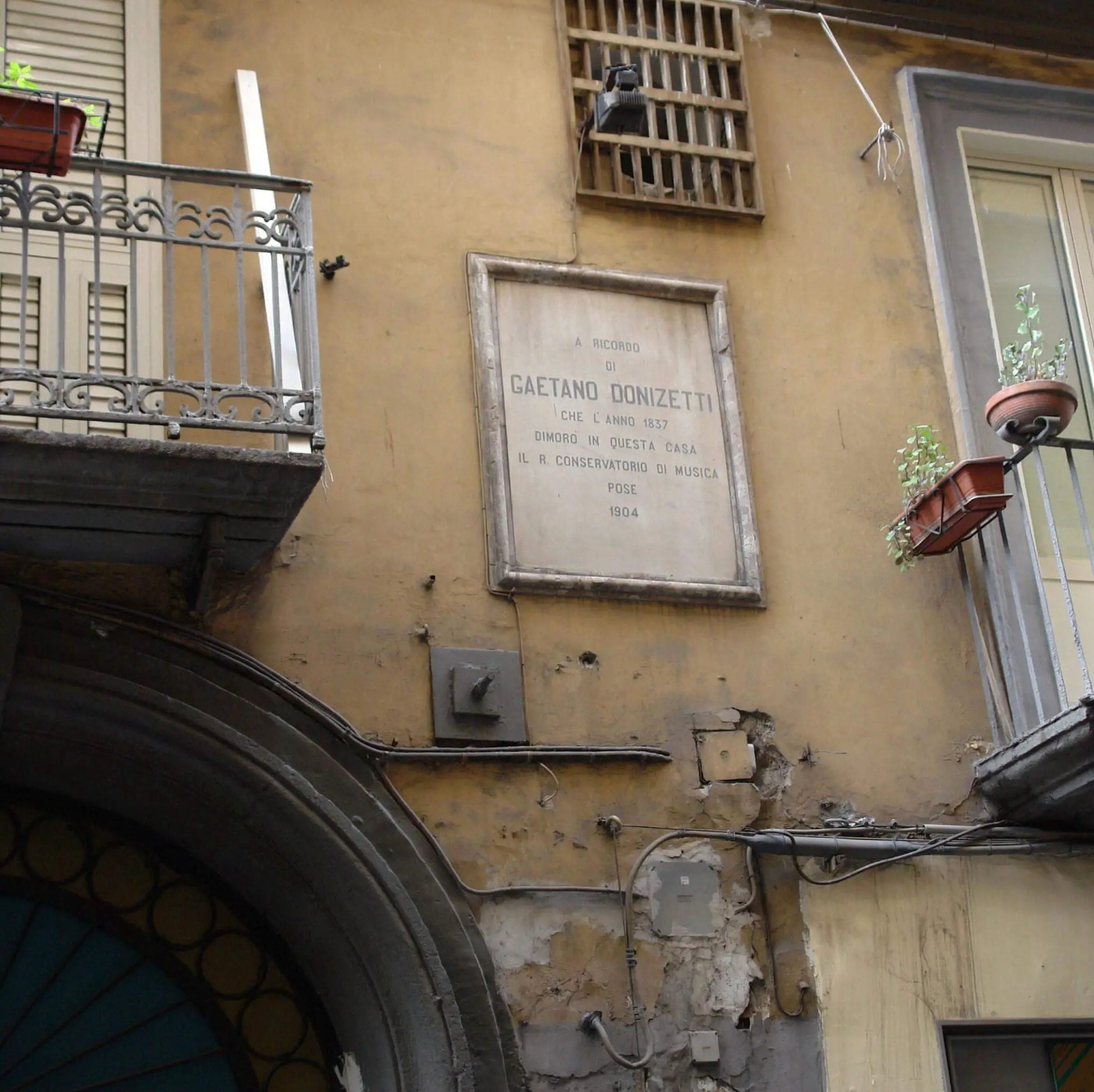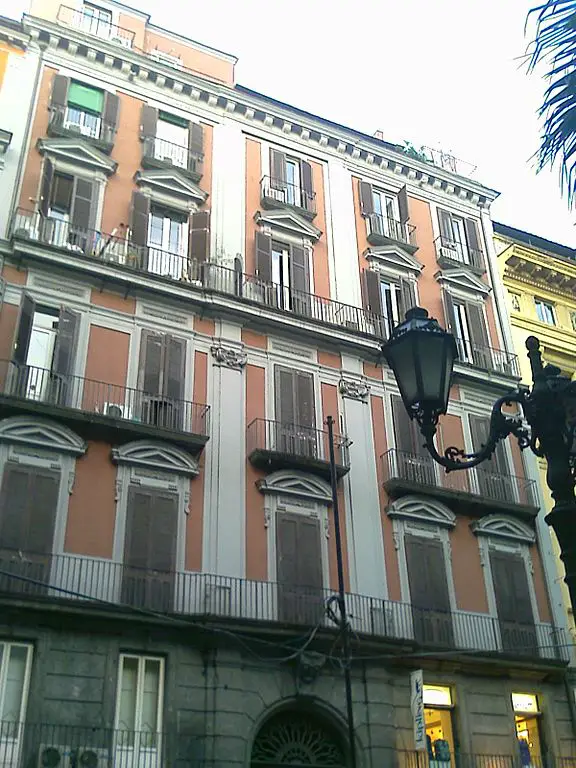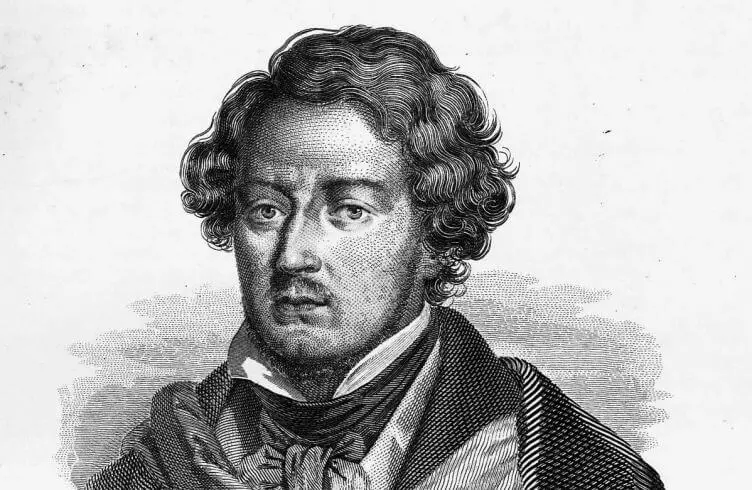Donizetti in Naples
The series about historical places of opera art & culture. Get to know exciting excursion and travel ideas for opera lovers. This time: Donizetti in Naples
All Destinations on google maps with links to detailed Blogposts:
Donizetti in Neapel
Donizetti spent most of his artistically productive time in Naples. It was the famous impresario Barbaja who brought him to Vesuvius. After his first success in a smaller theater in Naples, he installed him as Rossini’s successor at the famous San Carlo. There, over the next 15 years, Donizetti produced 25 operas for premiere at local theaters. Like Rossini, he also produced for other theaters, and he toured Italy tirelessly, sometimes to escape Naples’ notorious cholera epidemics.
From 1830 Donizetti rose to become the leading opera composer in Italy and all of Europe. Bellini died in 1835, Rossini fell silent in 1829 and Verdi’s first successful opera was not born until 1843. The first work to achieve international fame was Anna Bolena, followed by his Elisir d’amore and his best known opera, Lucia di Lammermoor, among others.
In these years, the tenor is transformed into the heroic role. Gilbert Duprez established the “do in petto,” the high C from the chest, in Rossini’s William Tell. With the role of Edgardo in Lucia and Poliuto (in the opera of the same name), Donizetti pushes the role further, culminating in the drama of the death of the famous tenor Adolphe Nourrit in Naples (see below).
1828 he had married the eighteen-year-old Roman Virginia Vaselli. Three of their children were born deformed and died shortly after birth. This was probably due to Donizetti’s lues infection. When she died of cholera in 1837, and his parents shortly thereafter, Donizetti had reached the lowest point of his life and tried to bury his pain in his work. It is all the more remarkable that he wrote his great comedy “Don Pasquale” in the midst of these disasters.
In 1839 he left Naples for good, incensed that he had not been given the post of director of the conservatory and that his opera “Poliuto” had been rejected by the Neapolitan censors. His campaign of conquest of the French capital had already begun 4 years earlier.
Donizetti in Naples
Donizetti spent most of his artistically productive time in Naples. It was the famous impresario Barbaja who brought him to Vesuvius. After his first success in a smaller theater in Naples, he installed him as Rossini’s successor at the famous San Carlo. There, over the next 15 years, Donizetti produced 25 operas for premiere at local theaters. Like Rossini, he also produced for other theaters, and he toured Italy tirelessly, sometimes to escape Naples’ notorious cholera epidemics.
In 1828 he married the eighteen-year-old Virginia Vaselli. Three of their children were born deformed and died shortly after birth. This was probably due to Donizetti’s lues infection. When she died of cholera in 1837, and his parents shortly thereafter, Donizetti had reached the lowest point of his life and tried to bury his pain in his work. It is all the more remarkable that he wrote his great comedy “Don Pasquale” in the midst of these disasters.
In 1839 he left Naples for good, incensed that he had not been given the post of director of the conservatory and that his opera “Poliuto” had been rejected by the Neapolitan censors. His campaign of conquest of the French capital had already begun 4 years earlier.
TO THE COMPLETE DONIZETTI BIOGRAPHY
Destination Via Nardones
Donizetti lived in various places in Naples, a commemorative plaque is located at a residence of the year 1837 on Via Nardones 14.
Commemorative plaque of Donizetti:
Destination Palazzo Barbaja, Defenestration of Naples
In this house, the former Palazzo Barbaja, a bang in opera history occurred on March 8, 1839: the famous French tenor Adolphe Nourrit threw himself to his death from the window. He had come to Naples to sing the leading role in Donizetti’s new opera “Poliuto”, driven out by the new star in the Paris Opera sky the tenor Gilbert Duprez. Duprez was the first tenor to sing a high C from the chest, redefining the role of the heroic tenor. Nourrit, who sang high C from the falsetto, suffered badly from being out-of-fashion in Paris and tried to readjust his voice in Naples. But the attempt failed and he ruined his voice, possibly also because of his excessive drinking. When Neapolitan censors banned “Poliuto”, Nourrit’s hopes for a comeback vanished. Donizetti left in a huff and brought “Poliuto” to the stage in Paris, with … Duprez in the leading role. It was all too much for Nourrit and he called it a day at Palazzo Barbaja, in the busy Via Toledo, jumping out of the window.
Palazzo Barbaja:
Adolphe Nourrit:
Musical background: Opera in the shadow of cholera
Naples and cholera go together. Even in 1973, there was still an outbreak in Naples. In 1832, Donizetti wrote his “Elisir d’amore” in Naples and Milan. Superficially, this comedy is about a Tristan persiflage, but it was clear to contemporary theatergoers that cholera plays a role in this opera. Red wine and the “Solanum Dulcamara” (a nightshade plant) were common remedies in the fight against cholera. So it is no coincidence that a certain Dr. Dulcamara sells a bottle of wine to the gullible Nemorino. An ambiguous comedy with a serious background.
Listen and see the performance of Dr. Dulcamara from “Elisir d’amore” stunningly sung by Enzo Dara.
Udite o rustici – Dara
https://opera-inside.com/elisir-damore-by-gaetano-donizetti-the-opera-guide/#Udite




Leave a Reply
Want to join the discussion?Feel free to contribute!